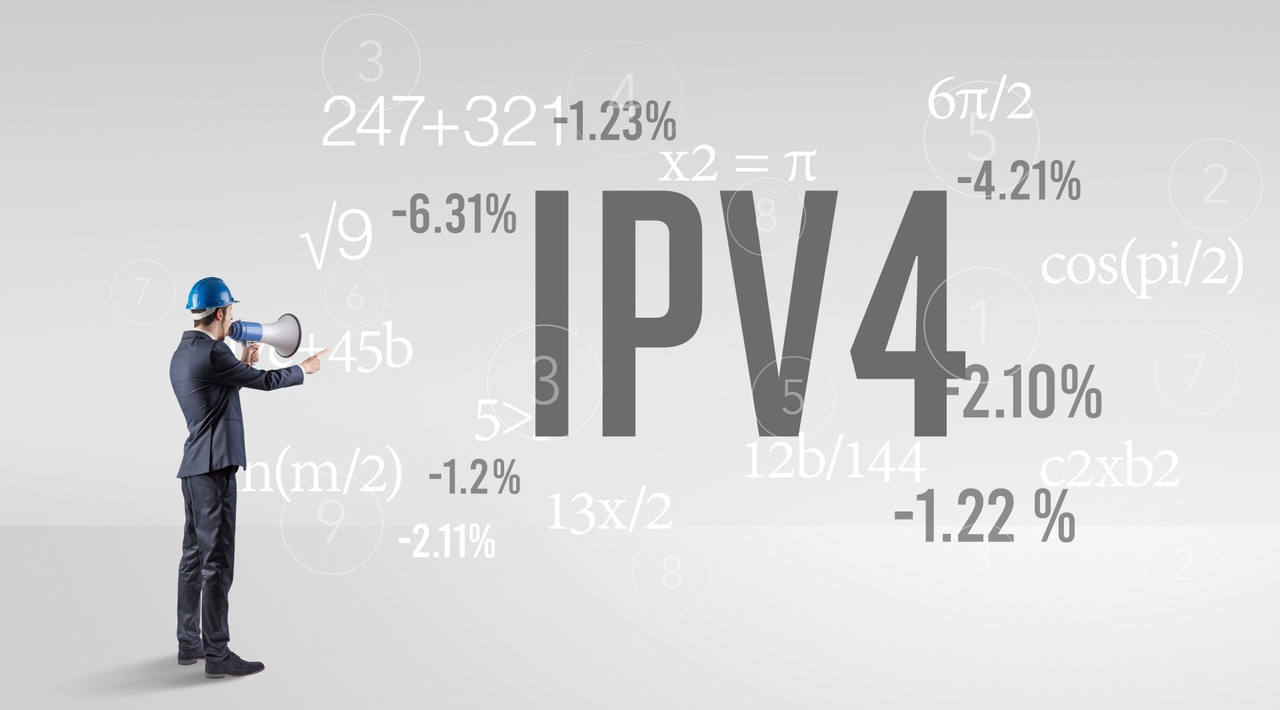Buy or Lease IPv4 Addresses: What's the Best Option?Buy or Lease IPv4 Addresses: What's the Best Option?
Both options, buying or leasing, have their benefits and challenges, and the decision should be based on a thorough evaluation of an organization's specific requirements and the broader industry trends.
August 19, 2024

As the global demand for internet connectivity continues to soar, the scarcity of IPv4 addresses and slow IPv6 adoption mean that organizations face critical decisions regarding their IP address strategies. In addition, cloud providers and internet service providers (ISPs)charge businesses per address, regardless of whether every address is being used. As a result, many businesses are reevaluating their IP address strategies.
Buy or lease?
To support their organizations’ growth plans, network managers face a critical decision: should they buy or lease these valuable resources?
The scarcity of IPv4 addresses, driven by the protocol’s 32-bit address scheme that supports approximately 4.3 billion unique addresses, poses an ongoing challenge. The rapid growth in connected devices has exhausted the available pool of IPv4 addresses, making it necessary for organizations to look to the secondary market. IPv6 is the future, but, despite its vastly larger address space, lack of backwards interoperability means that the transition from IPv4 has been gradual, ensuring its ongoing demand.
Growing businesses that are not ready or able to migrate fully to IPv6 are faced with two options: acquire or lease IPv4 addresses. Currently, IPv4 address prices are at their lowest in three years, with small blocks available at just $33 per address, making outright purchase a potentially attractive option. There are also multiple leasing options available. Costs have remained more constant here – with addresses costing $0.35 – $0.45 per address per month depending on quantity and length of lease, among other factors.
Provider Pricing
Many cloud providers and ISPs have introduced charges for IPv4 addresses, regardless of whether the address is being actively used. With the cost of acquisition currently well below that level, businesses needing 100 or more addresses might prefer to buy blocks outright. However, with providers offering a free “bring your own IP” option, leasing addresses for about $4.00 per year would offer plenty of flexibility while saving money and without any large upfront outlay.
When to Buy
Purchasing IPv4 addresses can be seen as a long-term investment. Once acquired, these addresses become a permanent asset for the organization, providing stability and continuity in network planning. This is particularly advantageous for businesses with stable or predictable growth patterns. Owning IPv4 addresses grants full control over their use, allowing organizations to configure, assign, and manage them according to specific needs without the constraints of lease agreements. This level of control and flexibility is crucial for organizations with complex or evolving network requirements.
In addition, while prices are relatively low right now, it’s likely that the value of IPv4 addresses will appreciate over time due to their limited availability, opening the possibility of a potential financial return on investment. Buying also eliminates the risk of having to replace the IPv4 addresses at the end of the lease in a higher market. Even more, it means avoiding the trouble of renumbering—potentially alienating and losing—customers.
Buying IPv4 addresses also eliminates the recurring costs associated with leasing, which can be significant over the long term. For organizations with ongoing, predictable IP address needs, purchasing can result in substantial cost savings.
When to lease
On the other hand, leasing IPv4 addresses offers several benefits, particularly in terms of cost efficiency. Leasing requires a lower initial financial outlay compared to purchasing, making it an attractive option for startups, small businesses, or organizations with limited capital. It provides access to the necessary IP resources without the burden of significant upfront costs. Additionally, leasing offers greater flexibility and scalability. Organizations can lease the exact number of addresses they need for a specific period, making it easier to scale up or down based on changing requirements. This is especially beneficial when the IP resources are needed for projects with temporary or fluctuating demands.
When leasing IPv4 addresses, the lessor often handles the maintenance and management of the addresses, reducing the administrative burden on the lessee. This arrangement allows organizations to focus on their core business activities while benefiting from the technical support and expertise provided by the lessor.
Balancing pros and cons
To determine whether buying or leasing IPv4 addresses is the best course of action, organizations should consider their current and projected future address requirements, available budget, and the importance of control over IP address management. They should also evaluate their anticipated timeline for IPv6 adoption to align their IP address strategy with their overall business goals and operational requirements.
Both options, buying or leasing, have their benefits and challenges, and the decision should be based on a thorough evaluation of an organization's specific requirements and the broader industry trends. By making informed choices today, businesses can ensure their networks are well-prepared for the demands of the future, maintaining connectivity and competitiveness in an ever-evolving digital world.
About the Author
You May Also Like




